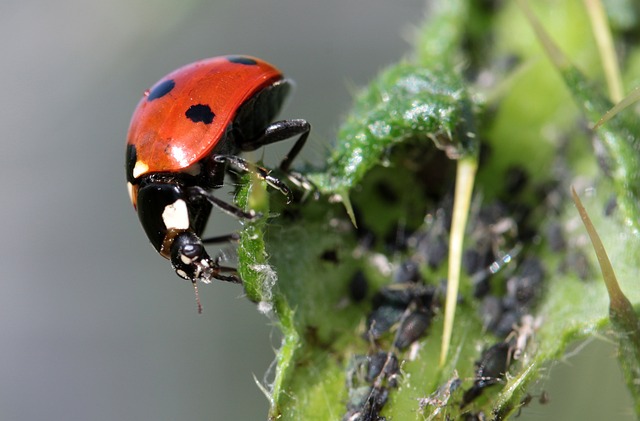In Sheridan, effective residential mosquito control is crucial for public health due to West Nile Virus concerns. It involves eliminating standing water, installing screens, strategically applying insecticides or natural repellents, and understanding mosquito behavior. Bird deterrent systems, considering local bird migration and habitats, are key. These systems use visual, auditory, and chemical deterrents to significantly reduce mosquito populations, mitigating the risk of West Nile virus transmission while ensuring outdoor comfort for residents.
In the heart of Sheridan, maintaining a safe and pest-free environment is paramount, especially regarding residential mosquito control. With the West Nile Virus as a significant concern, effective prevention strategies are essential. This article explores comprehensive solutions, focusing on bird deterrent systems, to mitigate mosquito populations and protect communities from this potentially serious health risk. Discover how these innovative approaches can transform outdoor spaces into more enjoyable and safer areas for residents.
- Understanding Residential Mosquito Control
- West Nile Virus Prevention Strategies
- Bird Deterrent Systems: Effective Solutions
Understanding Residential Mosquito Control

In many residential areas, particularly in cities like Sheridan, effective mosquito control is a significant concern for public health and quality of life. The West Nile Virus, transmitted through mosquito bites, has been a growing issue, prompting communities to explore robust prevention strategies. Residential mosquito control involves a combination of methods designed to reduce mosquito populations near homes and protect residents from potential virus exposure. This includes eliminating standing water, where mosquitoes breed, and implementing physical barriers like screens and netting.
Additionally, targeted applications of insecticides or natural repellents can be utilized in strategic areas around residences. By understanding the breeding cycles and habits of mosquitoes, homeowners and local authorities can implement tailored solutions to mitigate the risk of mosquito-borne diseases like West Nile Virus. Such efforts contribute to a safer and more enjoyable environment for Sheridan residents, ensuring outdoor activities can take place without undue concern.
West Nile Virus Prevention Strategies

In recent years, the spread of diseases carried by mosquitoes has become a growing concern, with West Nile Virus (WNV) being a significant threat in many communities, including Sheridan. Residential mosquito control is not only about ensuring a peaceful outdoor experience; it’s also crucial for preventing the transmission of WNV and other mosquito-borne illnesses. One effective strategy involves implementing bird deterrent systems, as birds are both potential carriers and victims of WNV.
By understanding the migration patterns and habitats of local bird populations, homeowners can employ specific deterrents that disrupt mosquito breeding grounds without harming birds. These methods include installing bird-safe lighting, using reflective surfaces to confuse mosquitoes, and implementing water management practices to eliminate stagnant water bodies where mosquitoes breed. Such proactive measures not only reduce the mosquito population but also contribute to a safer environment for both residents and local avian species in Sheridan.
Bird Deterrent Systems: Effective Solutions

Bird deterrent systems are effective solutions for residential mosquito control, especially in areas like Sheridan where preventing the spread of diseases such as West Nile virus is crucial. These systems employ various methods to keep birds away from living spaces, thereby reducing mosquito populations. One common approach involves using visual deterrents like reflective objects or decoys that mimic natural predators, confusing and scaring off potential bird invaders.
Another powerful method leverages sound waves. Certain frequencies can disturb birds’ navigation and communication, causing them to flee the area. Additionally, chemical repellents specifically designed for mosquitoes can be used in conjunction with these systems. By combining multiple strategies, bird deterrent systems offer a comprehensive solution for residential mosquito control, promoting a healthier environment free from the risk of West Nile virus transmission.
In light of the above discussions on residential mosquito control and West Nile virus prevention, implementing effective bird deterrent systems emerges as a key strategy for Sheridan residents. By adopting these solutions, communities can significantly reduce mosquito populations, thereby minimizing the risk of West Nile virus transmission. Remember that proactive measures are essential to safeguard public health and create a safer environment for all.
